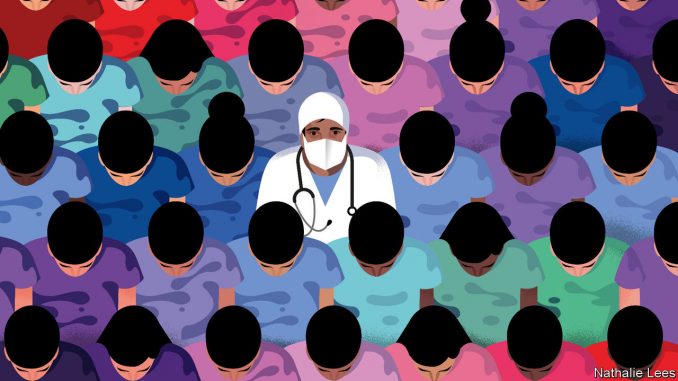
It all started from the New Year eve. 31st December, 2019, saw the first case of coronavirus in Wuhan, China. From then on, this deadly virus has spread its tentacles all over the world in a matter of three months, killing more than 18,000 people and affecting above 4 lakh people, according to the facts and figures shared by the World Health Organization. The coronavirus pandemic has affected these three countries the most: China, Italy and the US. In India, the figures are escalating almost by the hour sending the country in a complete lockdown. Currently (as on 26th March), the total number of coronavirus cases in India is 694 including 13 deaths, according to the Ministry of Health and Welfare. Out of these 649 cases, 44 have been cured/discharged and one has been migrated.
Amidst all these, the best we can do is staying at home, maintaining physical distance and proper hygiene by washing our hands. “If everybody follows these measures to a tee, then we can actually prevent the spread of coronavirus and the outbreak too,” says Dr. Sandeep Budhiraja, Group Medical Director – Max Healthcare & Senior Director – Institute of Internal Medicine. Though these coronavirus precautions do not guarantee a 100 per cent protection, they are likely to reduce the risk of catching and spreading the infection by quite a few notches.
Preventive measures apart, early detection of symptom is the cornerstone of managing any disease successfully and more so, in case of a rapidly spreading infection like coronavirus. Here is a low-down on a few hitherto-unknown potential coronavirus symptoms.
LOSS OF SMELL: NEW-FOUND SYMPTOM OF CORONAVIRUS
Spotting the signs of COVID-19 early on will put a leash on the death toll, worldwide. While it is easy to catch the usual flu-like or respiratory symptoms, there are other surprising symptoms of coronavirus that you may end up ignoring. Loss of taste and smell are among those that we hardly know about. Recently, ENT experts from across the globe have expressed that anosmia, the scientific term for lost sense of smell, can be an early manifestation of COVID-19.
Evidences from countries like South Korea, China and Italy suggest that quite a few coronavirus patients experience a reduced depleted or lost sense of smell. In fact, a study published in February in Nature reports that 30 per cent of the 2000 COVID-19 patients from South Korea, who participated in the survey, experienced loss of smell.
In Germany too, 2 out of 3 patients who tested positive for this virus suffer from anosmia, evidences suggest. “This is very unusual of this virus because no other flu-like illness presents with this symptom. Surprisingly, initial reports suggest that there can be cases where the patients experience only loss of smell, no other symptom,” says Dr. Budhiraja. “Common cold and flu is accompanied by a runny nose. Blocked nose takes away the sense of smell in those cases. But coronavirus doesn’t come with blocked or runny nose. So, experiencing a loss or reduction of olfactory sense is a peculiar, unexplained symptom,” he adds.
This can be a significant clue for diagnosis for doctors in patients who do not complain of the usual respiratory symptoms. Recently, WHO officials also announced that they’ll be looking into the possible association between COVID-19 and loss of smell.

LOSS OF TASTE: ANOTHER UNUSUAL SYMPTOM OF CORONAVIRUS
Additionally, dysgeusia, a compromised sense of taste, can also be an early sign of coronavirus, noted the American Academy of Otolaryngology – Head and Neck Surgery. According to them, there is “rapidly accumulating” anecdotal evidence of this from different parts of the world. So, they have suggested that doctors should factor in these symptoms while screening a person for COVID-19.
DIGESTIVE DISORDER: CORONAVIRUS SYMPTOM YOU SHOULDN’T IGNORE
Several studies have found evidences that COVID-19 may manifest itself through gut issues like nausea, vomiting, abdominal pain, diarrhoea and reduced appetite. One research, featured in the American Journal of Gastroenterology, conducted its survey on 204 patients from Hubei, China. Among the study participants, 48.5 per cent complained of gastrointestinal issues and 7 per cent didn’t complain of the most common coronavirus symptom: Respiratory troubles. However, more research is going on to confirm the link of these signs with COVID-19. Two other studies published in the New England Journal of Medicine shared evidences from the US and Vietnam where the patients experienced digestive problems. These findings have led some experts to speculate that coronavirus can actually shed in stool.
WHAT SHOULD YOU DO IF YOU EXPERIENCE THESE CORONAVIRUS SYMPTOMS?
Currently, the research on a link between coronavirus and these conditions is at a very nascent stage. There are not enough evidences to reach a conclusion. Too many questions wait to be answered as experts try to find out how common these symptoms are, how long they last, the time of their emergence, etc. Take for example, coronavirus patients with compromised olfactory senses. While some complained of loss of smell and taste quite early on, others have reported late onset, find doctors.
According to Dr. Budhiraja, “We don’t know how long this lasts, whether it is permanent or reversible.” Apart from these, experts are yet to be sure that these are not the manifestations of other conditions like allergies, cough and cold, seasonal flu, etc. Amidst all these ambiguities, medical bodies advise that if you experience these symptoms even without any respiratory or flu-like manifestation, then you should get yourself tested for coronavirus and consider self-isolation. Another coronavirus precaution is a must, suggest doctors: Hand washing
WHERE SHOULD YOU GET YOURSELF TESTED FOR CORONAVIRUS IN INDIA?
Screening is one of the foremost steps towards putting a brake on the coronavirus outbreak. Working in that direction, The Indian Council of Medical Research (ICMR), the apex medical research body of India, has included more than 100 government laboratories in its network for the testing of COVID-19. Known as Viral Research and Diagnostic Laboratories (VRDLs), these have been formed un a three-tier structure. The three tiers are: Regional, State and Medical College Level.
Given the alarmingly rapid rate at which the coronavirus pandemic is hitting India, the ICMR has allowed about 29 private laboratory chains to test for COVID-19. You can also visit the map of India’s COVID-19 laboratories and call these helpline numbers.
According to the ICMR guidelines, private laboratories have the permission to do home collection of samples only. They need to take appropriate bio-safety and bio-security precautions during sample collection. The labs will have to transfer the positive samples to ICMR’s National Institute for Virology, Pune. The labs need to destroy the negative samples within one week of collection.
The government recommended price for coronavirus testing is Rs. 4,500. The figure includes Rs. 1,500 for a screening test of suspected cases and Rs. 3,000 for a confirmation test.
WHO SHOULD GET TESTED FOR CORONAVIRUS?
First and foremost, you can go for the coronavirus test only if a qualified physician prescribes it. According to the guidelines of ICMR, you should ask for a test if you:
- Have travelled abroad in the last 14 days and experience symptoms like fever, cough, or respiratory issues.
- Are asymptomatic but a direct and high-risk contact of an infected person. You neeed to go for the test between day 5 and day 14 of contact with the person having COVID-19 infection.
- Are a healthcare professional attending coronavirus patients and develop coronavirus.
- Have been hospitalised for Severe Acute Respiratory Infections (SARI). It is a condition characterised by a fever higher than 100.4 degree Fahrenheit and cough for over past 10 day.
Click here for our latest updates on coronavirus.

